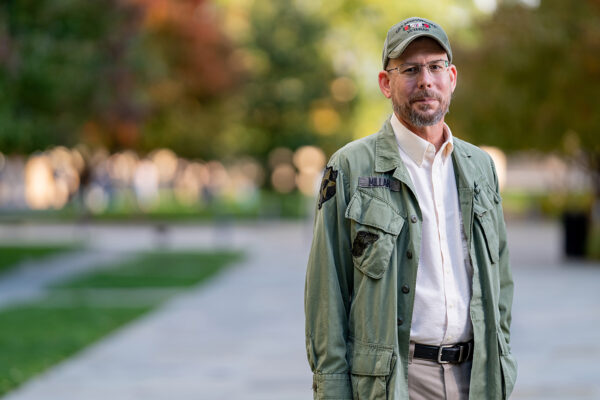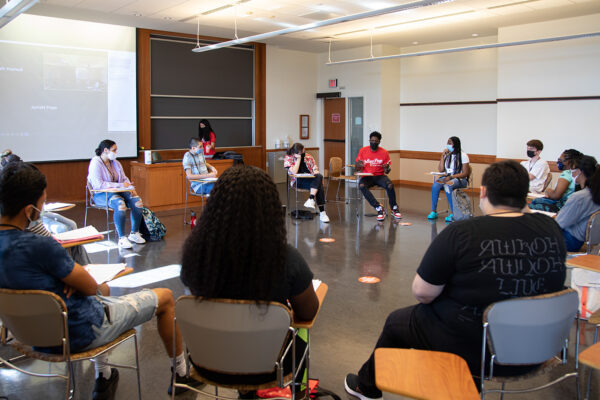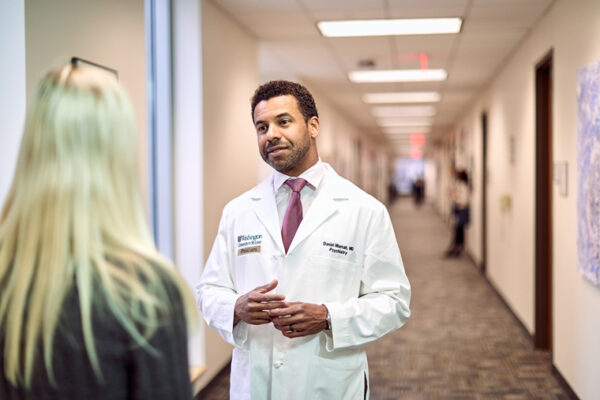Abram Saroufim found social work through trial and error and a little bit of luck.
He originally planned to be a doctor and majored in chemistry at Cornell University. But when it came time to register for the MCAT, Saroufim realized he didn’t really care about medicine. So he went to work as a tutor, thinking education may be the right field. And, indeed, Saroufim loved the gig, just not the teaching part.
“It was the mentoring and coaching that I found really rewarding,” Saroufim recalled. “That’s when it occurred to me that counseling would be my way of helping people.”
Later, Saroufim met a stranger on a park bench in Union Square Park in New York. He was waiting for a friend; she was on the phone, arranging care for a client struggling with opioid addiction.
“I don’t know what made me talk to her, but I turned and said, ‘Busy day?’ and asked her what she did,” recalled Saroufim, who hails from New Jersey. “She told me she was a licensed social worker working on her clinical hours. At the time I was thinking about clinical psychology or mental health counseling. But then she explained that social workers can be therapists, and that they have the flexibility to go into any other field, be it policy, community work or pretty much anything in between. That flexibility was exactly what I wanted.”
Saroufim decided to pursue his graduate studies at the Brown School at Washington University in St. Louis. He has focused on mental health and has completed a practicum at LifeWork, a provider of dialectical behavior therapy (DBT) and counseling for adults, adolescents and families in the St. Louis area. He also has worked as a research assistant on a project to improve educational equity in Afghanistan and Pakistan and has served as a social work intern for Arch City Defenders, a holistic legal advocacy organization.
After graduation, Saroufim wants to help develop culturally appropriate interventions to support mental health in immigrant communities in the United States and, later, in different nations around the world.
“Different people envision mental health differently,” Saroufim said. “My goal is to first build my skills as a therapist and then take that experience to other countries and learn from community leaders. How do people conceptualize mental wellness? What do people need to reach that standard of wellness? Together, we can find effective treatment and community-based programs.”
Saroufim’s interest in global mental health is rooted in his travels. The child of Egyptian immigrants, Saroufim served in the Peace Corps in Liberia and worked as a home health aide for adults with intellectual disabilities in Mexico City. At home and abroad, he has encountered people struggling with mental health disorders. But attitudes about mental health and access to care can vary widely from place to place.
Take, for instance, Liberia.

“The people in Libera are very good at banter and don’t take themselves too seriously,” Saroufim said. “But that means that sometimes they don’t take themselves seriously enough. I’ve only ever seen people cry at funerals because there is this perspective that the only thing that merits crying is losing a member of the community.”
He observed a similar phenomenon in Mexico, where a friend, a mother of three, hid her struggles from friends and family members.
“In her culture, mothers are supposed to be the rock,” Saroufim said. “Admitting otherwise would bring shame.”
Even at home, Saroufim has rarely heard members of his Coptic community use the Arabic word for “depressed.” Rarer still are immigrants who seek therapy. There is a stubborn perception in all of these places that people who seek help are weak, deranged or lacking in faith, Saroufim has observed.
“I’ll hear that you should pray your problems away,” Saroufim said. “As a Christian, I believe in prayer. But I also believe we need to remove the stigma surrounding mental health and treatments. My goal is not to force people into therapy but just to show them that it is an option in the journey towards mental wellness. What I want is for people to say, ‘Oh, you’re going to therapy? Cool.’”



